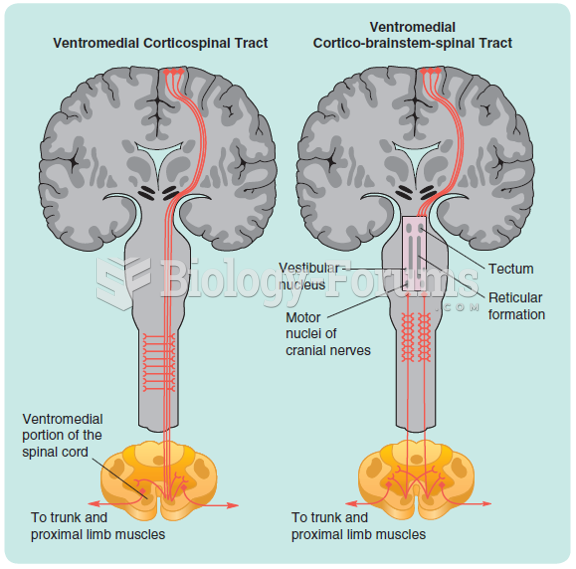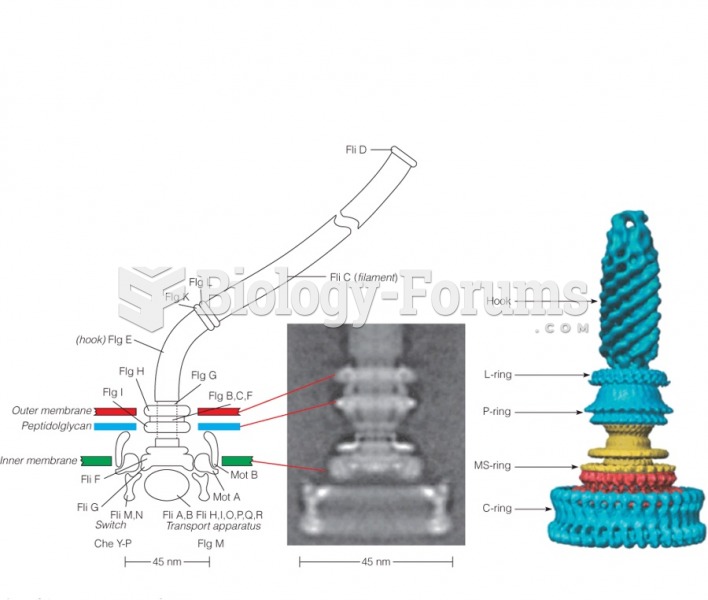This topic contains a solution. Click here to go to the answer
|
|
|
Did you know?
Essential fatty acids have been shown to be effective against ulcers, asthma, dental cavities, and skin disorders such as acne.
Did you know?
Parkinson's disease is both chronic and progressive. This means that it persists over a long period of time and that its symptoms grow worse over time.
Did you know?
In 1864, the first barbiturate (barbituric acid) was synthesized.
Did you know?
Urine turns bright yellow if larger than normal amounts of certain substances are consumed; one of these substances is asparagus.
Did you know?
Medication errors are three times higher among children and infants than with adults.
 Spinal cord—levels of injury; A, areas of sensory function (dermatomes); B, areas of motor function.
Spinal cord—levels of injury; A, areas of sensory function (dermatomes); B, areas of motor function.
 Because of immature visual-motor coordination, young children find it hard to throw and catch small ...
Because of immature visual-motor coordination, young children find it hard to throw and catch small ...
 Normal depolarization of the motor end plate: (a) Depolarization: Ach causes calcium to be released ...
Normal depolarization of the motor end plate: (a) Depolarization: Ach causes calcium to be released ...




